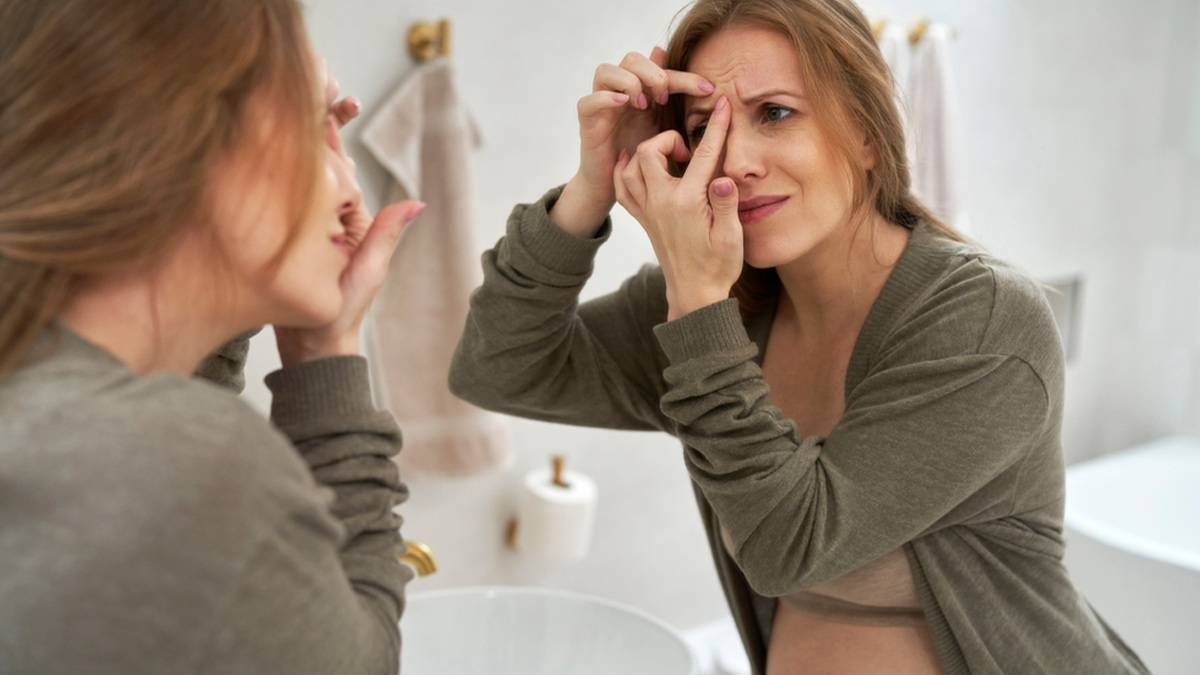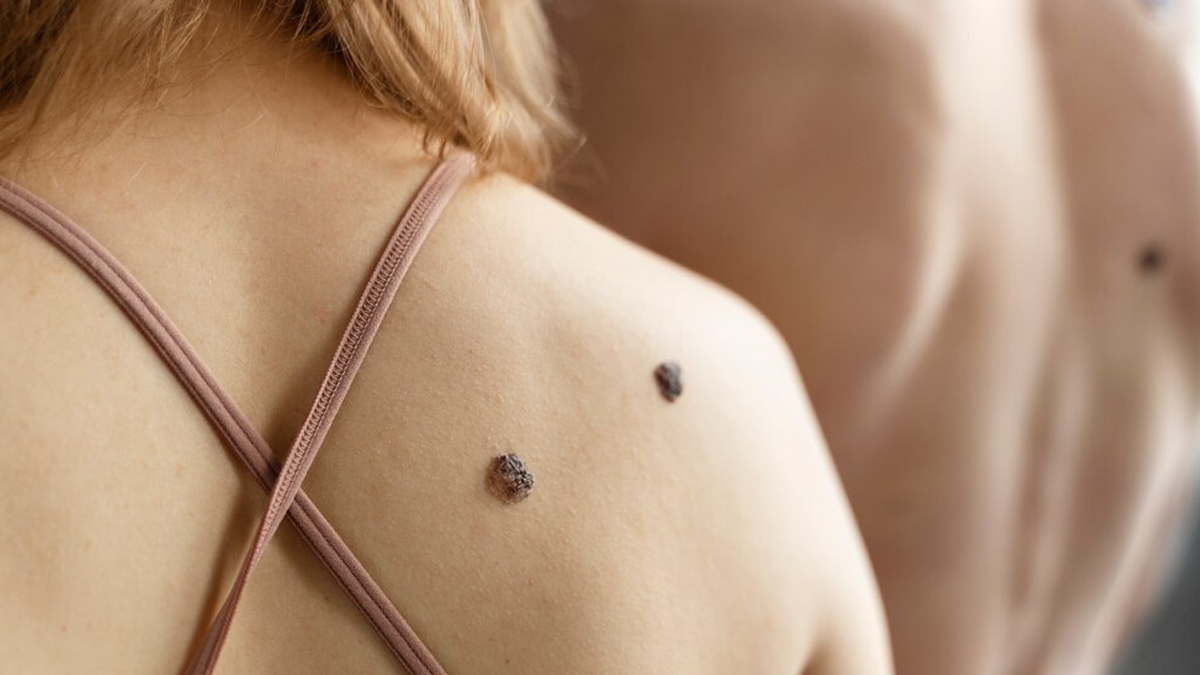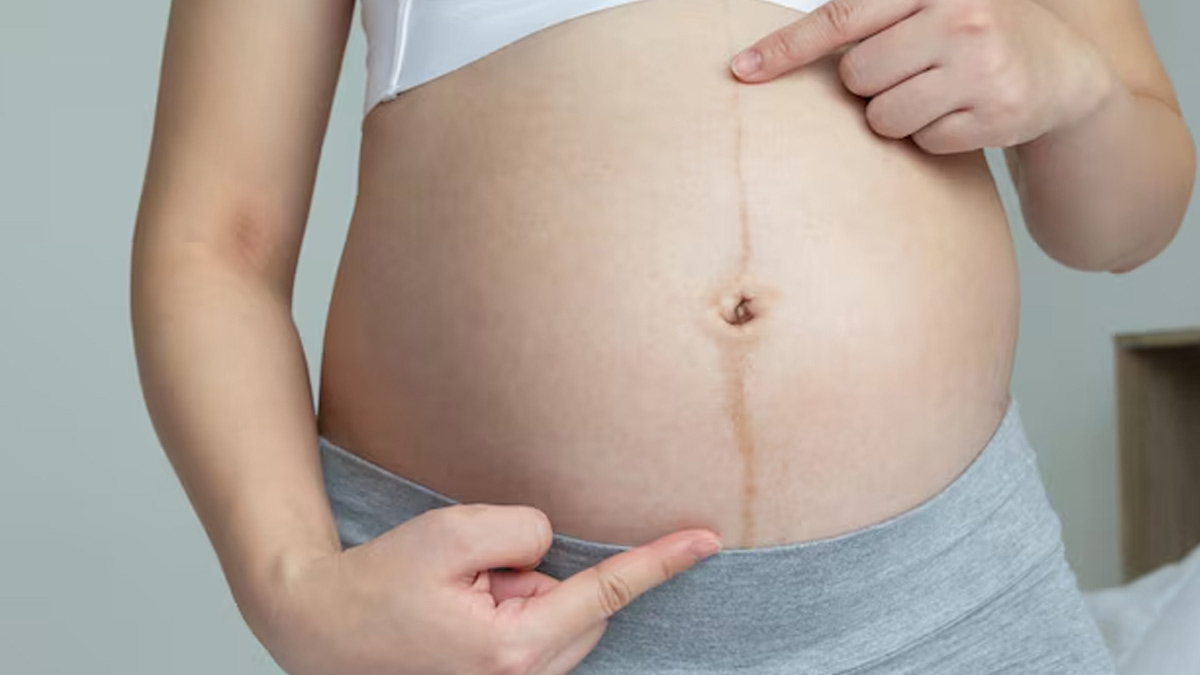Have you ever noticed your skin behaving in ways you didn’t expect during pregnancy? You may notice the appearance of stretch marks, or acne suddenly becoming an issue after years of having clear skin. For many women, pregnancy brings a host of unexpected changes, especially when it comes to their skin. We spoke to our expert Dr Ruby Sachdev, Consultant, Aesthetic Physician, Gleneagles Hospital, Bengaluru, who listed common skin problems women face during this time and how to handle them.
Common Skin Problems Women Face During Pregnancy
According to the Journal of Family Medicine and Primary Care, over 90% of women experience significant and complex skin changes that can greatly affect their lives during pregnancy. These changes primarily result from a combination of endocrinological, immunological, metabolic, and vascular shifts that occur during pregnancy, influencing the skin in various ways. Some changes are physiological, driven by hormonal fluctuations, while pre-existing skin conditions may either improve or worsen during this time.
1. Stretch Marks
Stretch marks, or striae gravidarum, are among the most common skin concerns for pregnant women. “These marks typically appear as pink, red, or purple streaks on areas prone to rapid stretching, such as the abdomen, breasts, hips, and thighs. Over time, they tend to fade to a silvery-white shade, but they may never completely disappear,” said Dr Sachdev.
Prevention and Treatment
- Keep the skin moisturised to improve elasticity and potentially reduce the severity of stretch marks.
- Recommended products include those containing hyaluronic acid, cocoa butter, or shea butter.
- Hydration and maintaining a steady weight gain are important for prevention.
- Regular, gentle massage may help in minimising stretch marks.
- After pregnancy, treatments, such as laser therapy, microneedling, or topical retinoids may reduce the appearance of stretch marks, although results can vary.
2. Acne

Pregnancy-related acne occurs due to increased androgen levels, which stimulate oil glands, leading to clogged pores and breakouts. Even women who previously had clear skin may experience acne flare-ups during the first and second trimesters.
Prevention and Treatment
- Maintain a gentle skincare routine to protect the skin.
- Use non-comedogenic, oil-free moisturisers and cleansers to control oil production without irritating the skin.
- Safe treatments during pregnancy include azelaic acid and glycolic acid.
- Avoid retinoids and other oral acne medications without medical guidance.
- Always consult your doctor before using any acne treatment during pregnancy.
3. Melasma (Pregnancy Mask)
“Melasma, also known as the ‘mask of pregnancy,’ is characterised by dark, blotchy patches on the face, particularly around the cheeks, forehead, and upper lip. This hyperpigmentation is primarily caused by hormonal changes but can be exacerbated by sun exposure,” added Dr Sachdev.
Prevention and Treatment
- Wear a broad-spectrum sunscreen with an SPF of 30 or higher to prevent melasma from worsening, especially outdoors.
- Choose sunscreens containing zinc oxide or titanium dioxide, which are safe for pregnant women.
- After delivery, treatments like hydroquinone, vitamin C serums, and chemical peels can help lighten pigmentation.
- Always consult a dermatologist before starting any post-pregnancy treatment for melasma.
4. Skin Tags

Hormonal changes during pregnancy can cause small, benign skin growths known as skin tags to develop in areas where the skin experiences friction, such as the neck, underarms, and beneath the breasts.
Prevention and Treatment
- While these growths are harmless and often disappear after delivery, they can be removed if they cause irritation or discomfort.
- Simple procedures like cryotherapy or cauterisation, performed by a dermatologist, can safely remove them.
5. Itchy Skin
“Dry, itchy skin is another common complaint, particularly as the abdomen stretches. In some cases, pregnant women may experience more severe conditions like Pruritic Urticarial Papules and Plaques of Pregnancy (PUPPP) or even cholestasis, a liver condition that causes intense itching,” added Dr Sachdev.
Prevention and Treatment
- To alleviate mild itching, regular moisturising with lotions containing aloe vera, oatmeal, or other soothing ingredients is recommended.
- For severe itching, especially if accompanied by other symptoms, it’s essential to seek medical advice to rule out any serious conditions.
Bottomine
Dr Sachdev concluded, “While many skin changes during pregnancy are temporary, it’s essential to manage them carefully. Use safe skincare products, avoid over-the-counter treatments that are not pregnancy-safe, and always consult a healthcare provider before starting any new treatment. Post-pregnancy, there are a variety of cosmetic and medical options available to restore skin health.”
[Disclaimer: This article contains information provided by an expert and is for informational purposes only. Hence, we advise you to consult your own professional if you are dealing with any health issues to avoid complications.]
